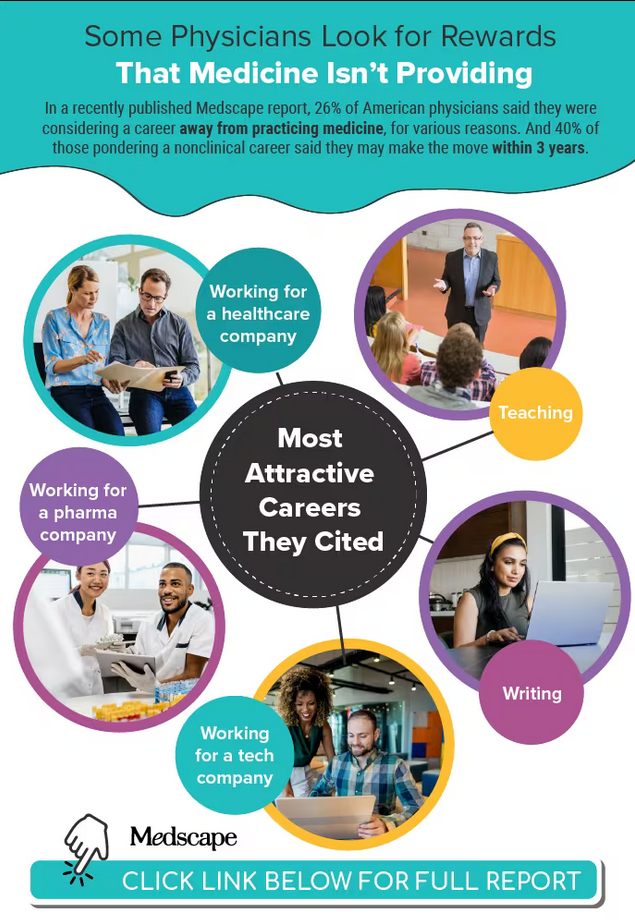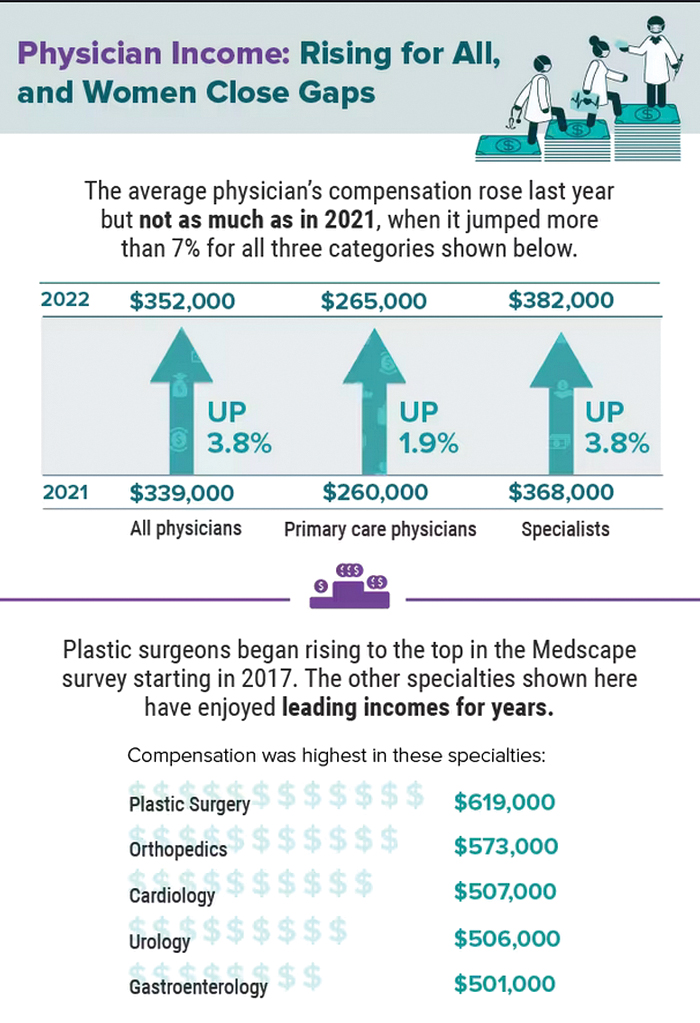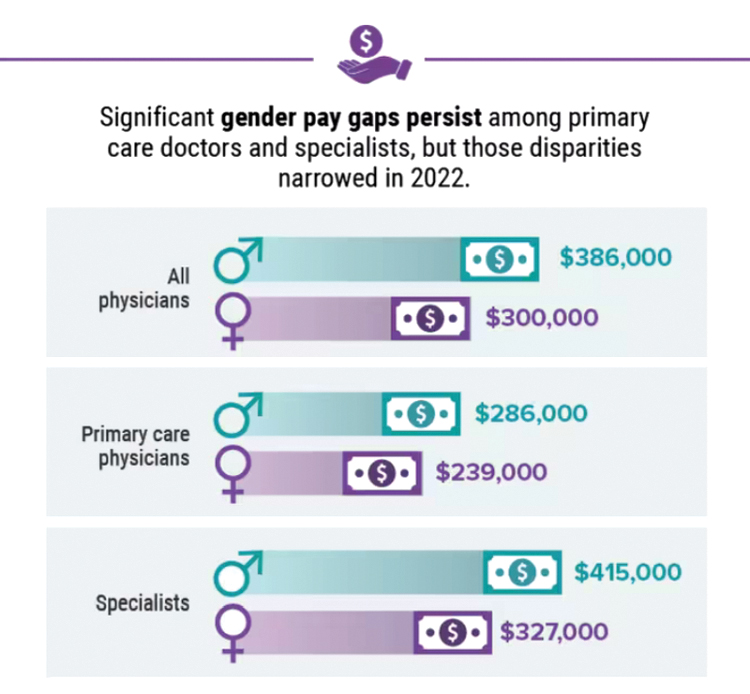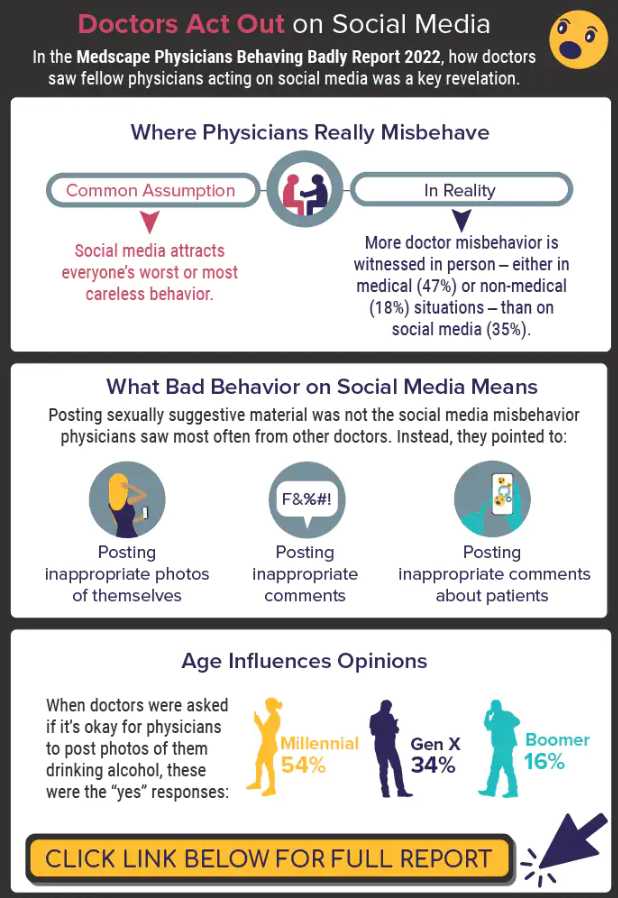User login
Prospect of Better Hours, Less Burnout Fuels Locum Tenens
Insane hours and work-driven burnout are increasingly pernicious forces in medical workplaces. They apparently also are helping steer more physicians toward locum tenens, or temporary, assignments.
In its “2024 Survey of Locum Tenens Physicians and Advanced Practice Professionals,” Coppell, Texas–based staffing firm AMN Healthcare asked doctors, nurse practitioners, and physician assistants why they chose locum tenens work.
The reason chosen most often is improving work hours. Eighty-six percent of respondents said that was the “most important” or a “moderately important” factor. Next was addressing work burnout (80% of respondents), followed by unhappiness with compensation (75%), and dissatisfaction with being a full-time employee (71%).
“During the COVID pandemic, healthcare professionals began to rethink how, when, and where they work,” said Jeff Decker, president of AMN Healthcare’s physician solutions division, adding that he estimates about 52,000 US physicians now work on a locum tenens basis.
“Locum tenens offers relief from the long, inflexible work hours and onerous bureaucratic duties that often cause dissatisfaction and burnout among physicians and other healthcare providers.”
These feelings of dissatisfaction dovetail with findings in recent reports by this news organization based on surveys of physicians about burnout and employment. For example:
- Forty-nine percent of physicians acknowledged feeling burned out, up from 42% 6 years earlier.
- Eighty-three percent of doctors attributed their burnout and/or depression to the job entirely or most of the time.
- Flexibility in work schedules was one of the improvements chosen most often as a potential aid to burnout.
- The leading reasons cited for burnout were the number of bureaucratic tasks and too many hours at work.
Trying Locum Tenens Early in Career
According to AMN Healthcare, 81% of the physicians and APPs in its latest survey said they started taking locum tenens assignments immediately after finishing medical training or in mid-career. Only 19% waited until after retiring from medicine compared with 36% in AMN Healthcare’s 2016 survey.
In the 2024 report, a strong plurality of respondents (47%) said they found locum tenens work more satisfying than permanent healthcare employment. Twelve percent said the opposite, and 30% found the choices about equal.
Even so, it doesn’t appear that locum tenens represents a permanent career path for many. About as many (45%) of physicians and APPs said they would return to full-time employment if progress were made with conditions like hours and burnout, as said they would not (43%).
“Many physicians and other healthcare professionals feel they are being pushed from permanent positions by unsatisfactory work conditions,” Mr. Decker said. “To get them back, employers should offer practice conditions that appeal to today’s providers.”
A version of this article appeared on Medscape.com.
Insane hours and work-driven burnout are increasingly pernicious forces in medical workplaces. They apparently also are helping steer more physicians toward locum tenens, or temporary, assignments.
In its “2024 Survey of Locum Tenens Physicians and Advanced Practice Professionals,” Coppell, Texas–based staffing firm AMN Healthcare asked doctors, nurse practitioners, and physician assistants why they chose locum tenens work.
The reason chosen most often is improving work hours. Eighty-six percent of respondents said that was the “most important” or a “moderately important” factor. Next was addressing work burnout (80% of respondents), followed by unhappiness with compensation (75%), and dissatisfaction with being a full-time employee (71%).
“During the COVID pandemic, healthcare professionals began to rethink how, when, and where they work,” said Jeff Decker, president of AMN Healthcare’s physician solutions division, adding that he estimates about 52,000 US physicians now work on a locum tenens basis.
“Locum tenens offers relief from the long, inflexible work hours and onerous bureaucratic duties that often cause dissatisfaction and burnout among physicians and other healthcare providers.”
These feelings of dissatisfaction dovetail with findings in recent reports by this news organization based on surveys of physicians about burnout and employment. For example:
- Forty-nine percent of physicians acknowledged feeling burned out, up from 42% 6 years earlier.
- Eighty-three percent of doctors attributed their burnout and/or depression to the job entirely or most of the time.
- Flexibility in work schedules was one of the improvements chosen most often as a potential aid to burnout.
- The leading reasons cited for burnout were the number of bureaucratic tasks and too many hours at work.
Trying Locum Tenens Early in Career
According to AMN Healthcare, 81% of the physicians and APPs in its latest survey said they started taking locum tenens assignments immediately after finishing medical training or in mid-career. Only 19% waited until after retiring from medicine compared with 36% in AMN Healthcare’s 2016 survey.
In the 2024 report, a strong plurality of respondents (47%) said they found locum tenens work more satisfying than permanent healthcare employment. Twelve percent said the opposite, and 30% found the choices about equal.
Even so, it doesn’t appear that locum tenens represents a permanent career path for many. About as many (45%) of physicians and APPs said they would return to full-time employment if progress were made with conditions like hours and burnout, as said they would not (43%).
“Many physicians and other healthcare professionals feel they are being pushed from permanent positions by unsatisfactory work conditions,” Mr. Decker said. “To get them back, employers should offer practice conditions that appeal to today’s providers.”
A version of this article appeared on Medscape.com.
Insane hours and work-driven burnout are increasingly pernicious forces in medical workplaces. They apparently also are helping steer more physicians toward locum tenens, or temporary, assignments.
In its “2024 Survey of Locum Tenens Physicians and Advanced Practice Professionals,” Coppell, Texas–based staffing firm AMN Healthcare asked doctors, nurse practitioners, and physician assistants why they chose locum tenens work.
The reason chosen most often is improving work hours. Eighty-six percent of respondents said that was the “most important” or a “moderately important” factor. Next was addressing work burnout (80% of respondents), followed by unhappiness with compensation (75%), and dissatisfaction with being a full-time employee (71%).
“During the COVID pandemic, healthcare professionals began to rethink how, when, and where they work,” said Jeff Decker, president of AMN Healthcare’s physician solutions division, adding that he estimates about 52,000 US physicians now work on a locum tenens basis.
“Locum tenens offers relief from the long, inflexible work hours and onerous bureaucratic duties that often cause dissatisfaction and burnout among physicians and other healthcare providers.”
These feelings of dissatisfaction dovetail with findings in recent reports by this news organization based on surveys of physicians about burnout and employment. For example:
- Forty-nine percent of physicians acknowledged feeling burned out, up from 42% 6 years earlier.
- Eighty-three percent of doctors attributed their burnout and/or depression to the job entirely or most of the time.
- Flexibility in work schedules was one of the improvements chosen most often as a potential aid to burnout.
- The leading reasons cited for burnout were the number of bureaucratic tasks and too many hours at work.
Trying Locum Tenens Early in Career
According to AMN Healthcare, 81% of the physicians and APPs in its latest survey said they started taking locum tenens assignments immediately after finishing medical training or in mid-career. Only 19% waited until after retiring from medicine compared with 36% in AMN Healthcare’s 2016 survey.
In the 2024 report, a strong plurality of respondents (47%) said they found locum tenens work more satisfying than permanent healthcare employment. Twelve percent said the opposite, and 30% found the choices about equal.
Even so, it doesn’t appear that locum tenens represents a permanent career path for many. About as many (45%) of physicians and APPs said they would return to full-time employment if progress were made with conditions like hours and burnout, as said they would not (43%).
“Many physicians and other healthcare professionals feel they are being pushed from permanent positions by unsatisfactory work conditions,” Mr. Decker said. “To get them back, employers should offer practice conditions that appeal to today’s providers.”
A version of this article appeared on Medscape.com.
Infographic: Careers that tempt doctors to leave medicine
In a recently published Medscape report, 26% of American physicians said they were considering a career away from practicing medicine, for various reasons. Becoming a teacher was one of the nonclinical careers that most enthused them. What were the others?
For more details, check out the Medscape Physicians and Nonclinical Careers Report 2023.

A version of this article first appeared on Medscape.com.
In a recently published Medscape report, 26% of American physicians said they were considering a career away from practicing medicine, for various reasons. Becoming a teacher was one of the nonclinical careers that most enthused them. What were the others?
For more details, check out the Medscape Physicians and Nonclinical Careers Report 2023.

A version of this article first appeared on Medscape.com.
In a recently published Medscape report, 26% of American physicians said they were considering a career away from practicing medicine, for various reasons. Becoming a teacher was one of the nonclinical careers that most enthused them. What were the others?
For more details, check out the Medscape Physicians and Nonclinical Careers Report 2023.

A version of this article first appeared on Medscape.com.
Infographic: Is your compensation rising as fast as your peers?
Did doctors’ salaries continue their zesty postpandemic rise in 2022? Are female physicians making pay gains versus their male counterparts that spark optimism for the future?
reveals which medical specialties pay better than others, and evaluates the current gender pay gap in medicine. If you’re interested in delving deeper into the data, check out Your Income vs. Your Peers’: Physician Compensation Report 2023.

A version of this article first appeared on Medscape.com.
Did doctors’ salaries continue their zesty postpandemic rise in 2022? Are female physicians making pay gains versus their male counterparts that spark optimism for the future?
reveals which medical specialties pay better than others, and evaluates the current gender pay gap in medicine. If you’re interested in delving deeper into the data, check out Your Income vs. Your Peers’: Physician Compensation Report 2023.

A version of this article first appeared on Medscape.com.
Did doctors’ salaries continue their zesty postpandemic rise in 2022? Are female physicians making pay gains versus their male counterparts that spark optimism for the future?
reveals which medical specialties pay better than others, and evaluates the current gender pay gap in medicine. If you’re interested in delving deeper into the data, check out Your Income vs. Your Peers’: Physician Compensation Report 2023.

A version of this article first appeared on Medscape.com.
Infographic: Is physician behavior on social media really so bad?
The medical profession is held to a high standard of personal conduct, so physicians keep a sharp eye out for how fellow doctors behave. That goes for social media as well as in-person conduct.
(and it’s not as egregious as you might think). If you’re interested in delving deeper into the data, check out the Medscape Physicians Behaving Badly Report 2022.

A version of this article first appeared on Medscape.com.
The medical profession is held to a high standard of personal conduct, so physicians keep a sharp eye out for how fellow doctors behave. That goes for social media as well as in-person conduct.
(and it’s not as egregious as you might think). If you’re interested in delving deeper into the data, check out the Medscape Physicians Behaving Badly Report 2022.

A version of this article first appeared on Medscape.com.
The medical profession is held to a high standard of personal conduct, so physicians keep a sharp eye out for how fellow doctors behave. That goes for social media as well as in-person conduct.
(and it’s not as egregious as you might think). If you’re interested in delving deeper into the data, check out the Medscape Physicians Behaving Badly Report 2022.

A version of this article first appeared on Medscape.com.

